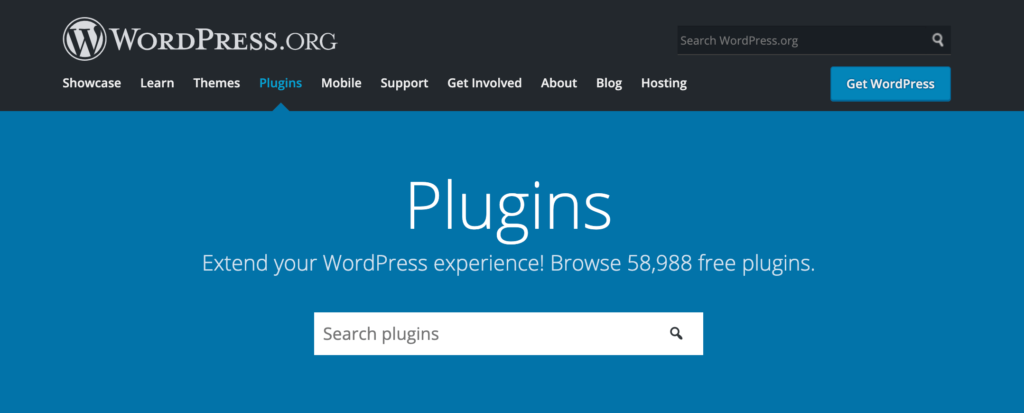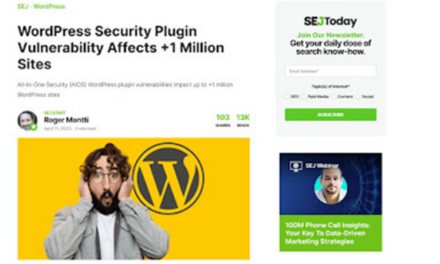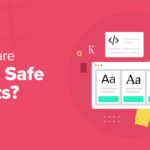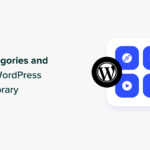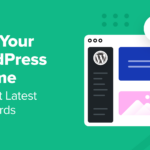Today, WordPress is widely respected as a reliable, scalable, and secure platform that’s capable of powering business websites. However, many people question whether WordPress is the right platform for enterprises.
That’s why we’ve created this guide. By exploring the strengths and weaknesses of WordPress, you can decide whether the world’s most popular Content Management System (CMS) is really ready for prime time.
In this post, we’ll start by arguing that WordPress does have some serious limitations for enterprise users. We’ll then look at the benefits of using this CMS for your company website. Let’s get started!
The Drawbacks of Using WordPress for Your Enterprise Website
Adopting WordPress as your enterprise Content Management System (CMS) is a huge decision. Before deciding whether WordPress is right for your enterprise, it’s important to consider the potential drawbacks.
Security is a major concern for the enterprise, and WordPress is a popular target for hackers. During the first six months of 2021, the Wordfence Web Application Firewall (WAF) blocked over four billion malicious requests. If you do opt for WordPress, then it’s vital you follow all of the latest security best practices.
Plugins are an essential part of the WordPress experience. While this does make WordPress an incredibly flexible and customizable platform, it can lead to plugin bloat. This is where your site’s performance and speed are impaired through excessive use of plugins.
All sites are susceptible to bloat, but enterprise websites often have a long list of requirements. This can easily translate to a long list of plugins.
To avoid a sluggish site, it’s smart to prioritize plugins that serve multiple purposes. You could even develop a bespoke plugin that meets all of your needs, or replace plugins with simpler code that’s integrated into the WordPress back end.
Although WordPress is easy to use, it takes time to learn any new technology. Every organization is different, so it’s important to evaluate how long your team will need to get up to speed. The good news is that WordPress is very popular, so you may discover that your employees already have experience with this platform.
Another issue is the frequency of updates. WordPress receives major upgrades two to three times a year, while smaller releases occur as they’re required. Themes and plugins also receive frequent updates.
Installing and testing these updates requires a significant amount of work. For this reason, you may want to consider enabling auto-updates and minimizing your plugin use.
4 Benefits of Using WordPress for Your Enterprise Website
While it’s important to acknowledge the downsides, there’s no denying that WordPress has lots to offer the enterprise. Here are four reasons why WordPress has become a platform that demands attention, even from the largest organizations.
1. It Has a Huge Library of Third-Party Plugins
What really makes WordPress unique is that the core software is only part of the WordPress experience. As a website owner, you’ll almost certainly extend the base platform with multiple plugins. In the official WordPress repository alone, you’ll find almost 60,000 free plugins:

This is a great start, but free software isn’t always the best fit for an enterprise site. There are plenty of free plugins that are maintained by big businesses. For example, the Jetpack plugin is created by Automattic, which is the company behind WordPress. However, this isn’t always the case.
Many free plugins are managed by a small team, or even an individual who started the project for fun. These projects are susceptible to being abandoned.
Discontinued software poses a huge security risk, as it will no longer receive patches for vulnerabilities. With this in mind, relying on free plugins may not always be a wise move. The good news is that there are many premium WordPress plugins available via dedicated marketplaces such as CodeCanyon:

These type of plugins are often created and maintained by professional organizations. Most of them come with 24/7 support, regular updates, and extensive documentation.
With a huge range of plugins, you should have no problems enhancing the core platform to meet all of your enterprise needs. Even better, by opting for premium plugins wherever possible, you’ll have access to the support, security, and reliability you need to keep your enterprise website running smoothly.
2. It’s a Mobile-Responsive Platform
The number of global smartphone users has passed three billion. With that in mind, it’s important that your chosen platform is responsive and mobile-friendly, particularly if you sell products and services online.
In 2019, mobile devices accounted for 65 percent of all eCommerce traffic, and 53 percent of sales. Depending on your industry, these numbers may be even higher. If you’re creating a site for a fashion empire, then this industry receives an impressive 67 percent of sales from mobile devices.
WordPress’ admin area and default themes are responsive by default. This means that your WordPress-based enterprise site will be mobile-ready straight away:

However, you’re not limited to these default themes. With mobile-responsiveness now a non-negotiable issue, many third-party themes are designed with mobile in mind. Therefore, you should have no problems finding a responsive theme for your WordPress website:

As an enterprise, you may have access to a team of developers and designers. If you’re struggling to find a theme that meets every item on your wishlist, you can always create your own. There are several responsive front-end theming frameworks available for WordPress, such as the Genesis framework and the Themify website builder:

These frameworks provide a foundation for building your very own mobile-responsive WordPress theme. Therefore, your team can create the perfect theme for your enterprise site, without having to start from scratch.
Many theming frameworks also come with built-in standards, so you can be confident that the resulting theme will be secure and high-performing. This is exactly what your enterprise site needs to succeed.
3. It Can Meet Your Changing Demands
Scalability is crucial for running a successful enterprise website. If you experience a sudden surge in traffic, then your site must be able to cope with the increased interest.
If your chosen technologies aren’t scalable, then periods of high traffic could impact your site’s performance, and may even knock it offline completely. Downtime is disastrous for any business, and as a successful enterprise your customers will have high expectations.
For this reason, it’s vital that you choose a highly scalable platform. Fortunately, WordPress is built with core web technologies that have proven to be highly scalable.
You also have plenty of WordPress web hosting providers to choose from. Some of them cater specifically to enterprise customers. Enterprise hosting can provide all the improvements that you may need in order to keep your site online during busy periods:

Choosing an enterprise-friendly hosting provider is a great start. However, when it comes to WordPress, there’s a plugin to help you achieve practically every task you can imagine – and boosting your site’s performance is no different.
As part of the WordPress community, you’ll get access to a huge range of caching, image optimization, and Content Delivery Network (CDN) plugins. You can use these plugins to fine-tune your site, and ensure that its running at peak performance regardless of how much traffic you attract.
4. It Supports Multisite and Multilingual Functionality
As an enterprise, you might run multiple sites. These may be affiliated, or they might be completely disconnected. For example, you may have acquired another website as part of a takeover.
If you have a digital portfolio, you’ll be happy to learn that WordPress supports multiple sites. Enterprise users can handle complex requirements from a single WordPress installation. This can reduce overhead in terms of time and server resources. It also makes it easier to access and transfer data between your multiple websites.
Today, it’s not uncommon for enterprises to operate on a global scale. Although 60 percent of all online content is in English, 74 percent of internet users speak a language other than English.
This represents a huge opportunity to get ahead of the competition by creating a multilingual enterprise website. In fact, studies show that 65 percent of consumers prefer to access content in their native language. You can create a multilingual website using a WordPress plugin such as Polylang:

This plugin adds a language picker, so customers can access your enterprise site in their preferred language. With Polylang, you can also optimize your site’s categories, tags, and custom taxonomies for different languages.
WordPress already has powerful built-in Search Engine Optimization (SEO) features. However, a plugin such as Polylang can help you win the SEO game across multiple languages.
Conclusion
With a long list of requirements, enterprise users have traditionally favored proprietary software. However, there is another way to run a successful business site.
Let’s quickly recap why you may want to use WordPress as your enterprise CMS:
- You’ll have access to a huge community of third-party plugins.
- It’s mobile-responsive by default.
- WordPress will have no problems scaling to meet your changing needs.
- You can easily run multiple multilingual websites, thanks to plugins such as Polylang.
Do you have any questions about the pros and cons of using WordPress as your company’s CMS? Let us know in the comments section below!

